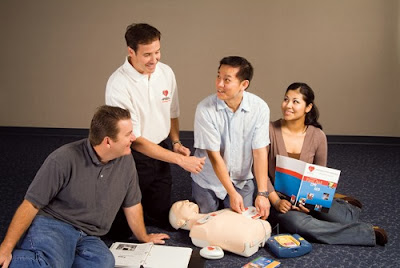ARDiver offers PADI ( Professional Association of Dive Instructors ) dive courses from recreational Scuba diving up to professional scuba diving level. PADI is the world's largest diver training organization. PADI establishes training programs, materials,standards and monitors their quality. The professionalism of PADI Instructors, Dive Centers and Resorts has made PADI certifications the world's most respected and sought- after dive credentials.
PADI Open Water Diver
The PADI Open Water Diver certification is a full entry level certification you earn by successfully completing the entire Open Water Diver course. The PADI Open Water Diver certification qualifies you to :
- Dive independently while applying the knowledge and skills you learn in this course, within the limits of your training and experience.
- Procure air fills, scuba equipment and other services.
- Plan, conduct and log open water no stop (no decompression) dives when equipped properly and accompanied by a buddy in conditions which you have training and experience.
PADI Advance Open Water Diver
The PADI Advance Open Water Diver certification requires you to complete the Underwater Navigation and Deep Adventure Dive and three other Adventure Dives that you and your instructor decide on.
PADI Rescue Diver
After completing the Advance Open Water Diver course, you are qualified to begin the PADI Rescue Diver course. This PADI Rescue Diver course will teach you emergency prevention, intervention and management. It is a course that is very challenging and fun at the same time.
PADI Divemaster
The PADI Divemaster course consists of three basic sections
- Knowledge development
- Water skills
- Practical Application
You'll probably progress through all three of these sections simultaneously, based on the course schedule you and your instructor agreed upon. Although the course is design to be very flexible, you must complete some parts before moving on to others. Knowledge Development consists of nine topics, which you'll cover through independent study and discussions with your instructor. Your instructor will hold sessions and discussions to provide more information, to check your progress and also you can ask questions or seek clarification. These range from formal classrooms to informal one on one discussions.
Upon completing all the requirements for certification, you'll have earn the PADI Divemaster certification and become a member of PADI, The world's largest and most respected organization od dive leaders and professionals.
Emergency First Response (EFR)
Emergency First Response Primary Care (CPR) Course Content
Emergency First Response Secondary (First Aid) Course Content
Emergency First Response Secondary Care (First Aid) covers injuries or illnesses that are not immediately life threatening. Participants focus on secondary assessment and first aid through knowledge development, skill development and realistic scenario practice.
Secondary Skills taught in this course:
Emergency First Response (EFR)
Emergency First Response Primary Care (CPR) Course Content
Emergency First Response Primary Care (CPR) teaches participants how to respond to life-threatening emergencies. The course focuses on primary care through a combination of knowledge development, skill development and realistic scenario practices to make sure participants have the confidence in their ability to provide care when emergency situation arise. Primary Care (CPR) skill taught in this course :
- Scene Safety Assessment Universal Precautions - Communicable Disease Protection, including barrier use, Primary Assessment Rescue Breathing, Cardiopulmonary Resuscitation (CPR) Conscious and Unconscious, Obstructed Airway Management, Serious Bleeding Management, Shock Management, Spinal Injury Management.
- Recommended Skills - Automated External Defibrillator (AED) training, Emergency Oxygen use orientation.
*courses are available for adult, child and infant.
Emergency First Response Secondary (First Aid) Course Content
Emergency First Response Secondary Care (First Aid) covers injuries or illnesses that are not immediately life threatening. Participants focus on secondary assessment and first aid through knowledge development, skill development and realistic scenario practice.
Secondary Skills taught in this course:
- Injury Assessment
- Illness Assessment
- Bandaging
- Splinting for dislocations and Fractures
*courses are available for adult, child and infant.



